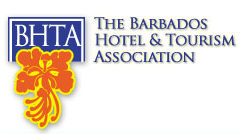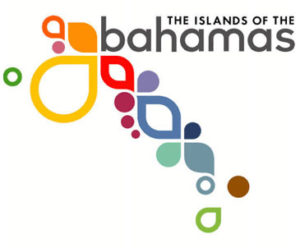
By: Monica Caesar, WPICC, DWC of Aisle Plan Your Day

15 Destination Wedding Planner Basics You Need to Know
Destination weddings are one the fastest growing segments of the wedding industry. Millennials are a generation passionate about travel; and they are driving the increased popularity of the destination wedding industry. Destination weddings allow the couple to turn their wedding celebration into a week- long affair, which unites their respective family and friends. Destination wedding planning can be a lucrative addition to your wedding planning business as 1 in 4 couples are now opting to have a destination wedding. If you are considering adding destination wedding planning services to your business, here are some of the basics you need to know:
1. GET EDUCATED & CERTIFIED:
The first step is to get educated. WPIC offers a Destination wedding certification course which will help you understand the ins & outs of destination wedding planning. Destination wedding planning is not for the faint of heart and by taking the Destination Wedding Certification course offered by WPIC, this is a great first step to ensure destination wedding planning is right for you.
2. RESEARCH:
Ensure your clients are aware of the pros and cons of a destination wedding. It is no secret that there are literally dozens of reasons why a couple would opt for a destination wedding in comparison to their home front counterpart. Do your research and have a list of pros and cons prepared for your couples who are considering a destination wedding as an option for their big day!
3. ADDING TRAVEL TO YOUR SERVICES:
Are you going to offer travel services to your couples? If so, research the various travel providers and determine which company may be the best fit. You need to weigh out the pros and cons of offering travel services to your clients and whether you have the time and financial means to invest in training.
4. THE MARRIAGE OF WEDDING PLANNERS & TRAVEL AGENTS:
Are you planning to offer destination wedding planning services only to your couples? If so, then you need to collaborate with a travel agent who can provide these services to your clients. Together, you can provide the services of having dedicated professionals working hard to organize their group travel arrangements and destination wedding plans through a “one stop shop.” This blends your complementary strengths and provides improved efficiency in your independent services.
5. THE INITIAL PLANNING STAGES:
You need to meet with your clients and ask a plethora of questions. For example: What is your preferred country, what time of year do you want to travel, what are the departure locations of all of your invited guests, how many guests do you expect to attend, what is the travel budget, will children be invited, and what is your overall wedding vision etc… These initial questions will allow you to start the research and obtain quotes to find their perfect destination.
6. THE WEDDING BUDGET:
As with any form of wedding planning, budget is key. It is important to ask the right questions about what your couple’s wedding budget includes. Does this include the cost of travel? The wedding attire? The wedding rings? In destination wedding planning, its also important to discuss currency. If the wedding is taking place in Mexico or the Caribbean for example, almost everything will be charged in USD, so this becomes extra important when you need to pay attention to fluctuating currency exchange rates. A $25,000 CDN budget may in fact only equate to $18,500.00 USD as a total budget. Ask your clients if they are providing their budget to you in Canadian or in US Dollars as you need to keep the conversion rate in mind right from the beginning.

7. CLIENTS RESPONSIBILITIES:
Through the travel planning stages and preliminary quote requests, it is important that you advise the clients to start gathering mailing & email addresses of their invited guests. Once the destination has been selected, we need to be able to send the booking information to guests in a timely manner due to initial deposit deadlines for travel.
8. WEDDING WEBSITE PREPARATION:
A wedding website is a must for destination weddings. You can offer this service to your clients or your clients can purchase and prepare this on their own. Either way, it is imperative that a wedding website is key to communicating important travel information & the itinerary of events to the invited guests. (Tip: Providing a PDF of the travel information listed on the website is also important so that guests can easily print off and share with guests that may not be computer-saavy, such as senior guests.) It is also important to note that formal paper invitations may need to be mailed to guests travelling from other countries where a traveller’s visa may be required.
9. WEDDING PLANNING: ON RESORT OR OFF- RESORT?
There is an array of resorts that have attractive wedding packages, while other resort chains can have limited wedding package options and upgrade options available. When researching destination wedding options (and before your clients commit to a property); you should provide your clients with an estimated budget on the resort package offerings vs having a wedding off property at a private venue within close proximity. There are many pros and cons for hosting a wedding on resort vs off-resort; and you should prepare this list of considerations for your clients in advance so that they feel educated on making the best decision for their celebration. (Tip: I encourage you to request that the resort provides you with their preferred vendors because if you feel they are not a good match for your couples overall vision, or you are not happy with the quality of their work, you can then request their external vendor fee and bring in your own preferred vendors to the resort.)
10. OFFERING ‘OFF-RESORT’ WEDDING PLANNING SERVICES:
A common trend among destination wedding couples is opting for a wedding off of the resort at a private venue. Is this a service you will offer? And if so, how will you accomplish this task? Will you provide onsite coordination services? In this case, the clients are putting the reigns into your hands, and trusting your venue and vendor recommendations. In order to offer this service, similar to planning a local wedding in your hometown, you need to be familiar with private venues and a wide range of vendors in each category. I recommend that you attend FAM Trips (Familiarization tours) to explore the various options available and meet with vendors you are interested including in your vendor database. (Tip: Contact the local tourism boards & local wedding planners in destination for recommendations.)
11. PROVIDING ONSITE COORDINATION SERVICES:
Will you offer onsite coordination at the destination to your wedding couples? For couples opting to host their wedding off property at a private venue; they will likely want you onsite to coordinate the hired vendors & set up details for their celebration, as well as ensuring the wedding timeline runs as planned. You need to determine a fee structure and an extensive list of terms & conditions for client’s booking your travel. It is very important that your couples understand your role and onsite responsibilities when travelling with your couple and their wedding group.
12. LEGAL WEDDINGS vs SYMBOLIC WEDDINGS:
Your clients must determine whether they want to have a legal wedding in their selected destination, or whether it makes more sense for them to have a symbolic ceremony; and get legally married in their own hometown prior to departure. As a destination wedding planner, it is your responsibility to inform the clients of the marriage requirements of their selected destination country. Residency requirements, blood tests and document translations may be required for a legal marriage, so you need to ensure your clients are well informed. (Tip: I also request a copy of the ceremony script beforehand so that my couples can review the script and make any necessary changes if required)
13. DON’T ASSUME THAT PRICING IS NON-NEGOTIABLE:
Don’t assume that pricing is non- negotiable just because you are planning a destination wedding. If your couple is bringing a sizeable group to a resort, that means they are bringing a big source of revenue to the property. You can try to negotiate upgrades for the couple (Value added services) and potentially earn free events based on the group’s rooming nights. Destination weddings on resort will typically have pre-designed wedding packages; if there are certain items outlined in the package that your clients may not require, request that these be removed for a potential discount. Or if the resort is wanting to charge a set up fee for items that the couple may be providing from home, you can request that these fees be waived. (Tip: When working with larger resort chains, I find its easiest to negotiate discounts while onsite at the meeting with the resort coordinator)
14. DESTINATION WEDDING ETIQUETTE
Just because your couples are hosting a destination wedding doesn’t mean that the traditional rules of wedding etiquette don’t apply. It is important to discuss etiquette with your destination wedding clients. Things that come to mind include: who will pay for what, ensuring guests have enough time to plan and being transparent about all costs involved, whether children will be invited, expectations on wedding gifts, pre-departure wedding events and researching local traditions and customs of the selected destination. Educate your couples!
15. HOLDING A SECOND CELEBRATION CLOSE TO HOME:
Many destination wedding couples will opt to host a post-wedding celebration in their hometown after returning home from their destination wedding. Couples can invite guests that weren’t on their original guest list, as well as guests that were unable to attend their destination wedding. This is an opportunity to add another level of service to your destination wedding planning services. If the couple is planning to host a post-wedding celebration, I typically recommend that they share photos and videos of their destination celebration, and potentially incorporate a theme reflective of their wedding day in paradise.
Monica Caesar is an award winning, full-time destination wedding planner and the owner of Aisle Plan Your Day based in Edmonton, Canada. Touted as one of Canada’s leading destination wedding experts and known for her creative and innovative ideas, Monica’s “zest- for- life” paired with her extensive experience and travels are ultimately the foundation that has built Aisle Plan Your Day into the seasoned wedding and event planning company that it is today.
Her energetic personality engages her clients as she creates one-of-a-kind weddings that are unique and distinctive in design. Aisle Plan Your Day has been a premier source for weddings since 2006, producing and executing flawless celebrations in locales spanning across Canada, to Mexico and all throughout the Caribbean. Monica’s high regard for detail and professionalism make Aisle Plan Your Day Canada’s premier Destination wedding & event planning company.
Monica has been an Instructor for the Wedding Planners Institute of Canada since 2009, and trains & certifies wedding planners across Canada and throughout the Caribbean & Mexico in local and destination wedding planning.
Monica has positioned herself as a sought after destination wedding expert, industry speaker and trainer. Monica travels the world sharing her experiences & expertise and her work has been featured in numerous international publications. Her extensive travel attending industry conferences, reviewing hotel properties, private wedding venues and wedding packages allows her to stay up to date with the latest industry trends and build an extensive network of top industry professionals worldwide.







Leave a Reply